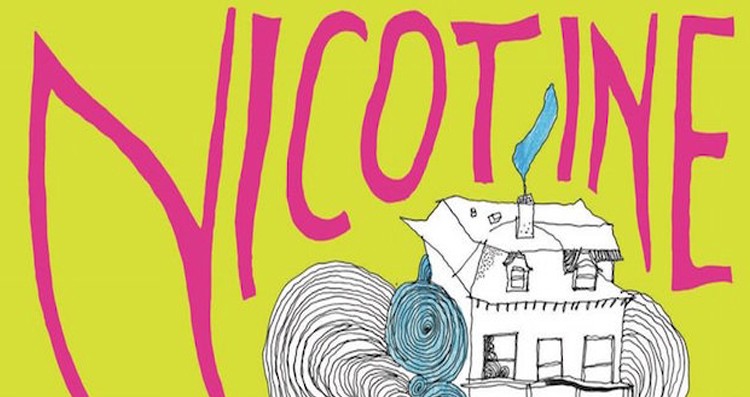Books & Culture
Death, Dialogue, and Delirium
Samanta Schweblin’s Fever Dream is full of unconventional mysteries and delectable literary mash-ups

How does one best describe Samantha Schweblin’s Fever Dream? One option would be to simply refer would-be readers to the title, which is apt. Another might be posit it as the result of some unlikely literary mash-ups: an interrogation blended with a deathbed confession; Gene Wolfe’s sinister/pastoral Peace interwoven with Silvina Ocampo’s hallucinatory tales of class and obsession. The novel takes its epigraph from Jesse Ball’s The Curfew, another narrative that’s notoriously difficult to pin down. Fever Dream is a short, terse novel; it’s also as expansive as the mind itself, and terrifying in the ways in which it evokes a panicked psyche spilling out its most horrific memories, fixations, and secrets.
“It’s the boy who’s talking, murmuring into my ear.” So says Amanda, the narrator of this novel, very early on in the proceedings. She’s just been told about worms–more properly, of a sensation that evokes the feeling of worms moving through the body. The questioner alternates between describing sensations for Amanda (evoking the final scenes of Synecdoche, New York, as the voice of Dianne Wiest directs Caden Cotard at the end of his life) and interrogating her, of trying to pinpoint exactly when things went wrong.
Soon more details emerge: Amanda is the mother of a young girl, Nina; the voice asking questions is that of David, a boy ailing as the result of a poisonous substance he drank. David’s sickness has led his mother, Carla, to take extreme measures: an occult technique called a “migration,” in which a person’s soul and the poison killing them are linked together. At least, that’s what seems to be happening in the novel’s early pages. Still, Schweblin also leaves space for ambiguity: “I want to tell Carla that this is all a bunch of nonsense,” Amanda says as she looks back on her memories of this event. “That’s your opinion,” David responds. “It’s not important.”
The title of Fever Dream serves as a constant reminder of the terrain we’re in as readers. At times, the give-and-take between Amanda and David can seem stilted, like an interrogation pushed into some realm far beyond stylization; on the other hand, that seems entirely appropriate for a fever dream. So, too, is the case with the strange twists the plot takes, which can defy logic–but, perhaps, not the logic of a fever dream.
Schweblin’s novel abounds with bizarre and unsettling imagery. At one point, Carla tells Amanda about a terrible sight she has recently seen: “three more dead ducks in the yard, stretched out on the ground like the day before.” Between a horse that plays a significant role in an early scene with David, the ducks that have met a horrid fate, and the metaphorical worms that are invoked on its opening page, animals are in abundance here. This, too, makes sense: for a novel that deals intimately with the fallibility of bodies and our own mortality, a juxtaposition of the natural world seems quite appropriate.
Fever Dream is an experiential book: it creates a powerful sense of mood from its earliest pages, but it also leaves a looming ambiguity in place over the course of its pages. Questions of memory and of identity run throughout the book, and events and figures slowly begin to blur as the winding plot takes turn after turn. (Again: fever dream.) Near the novel’s end, one character alludes to another “hallucinating me,” and the head-spinning mental gymnastics that ensue only add to the free-floating, highly ominous mood.

Attempting to describe Fever Dream isn’t an easy task. The shifting power dynamics that fuel its energy make for a thrilling reading experience, with their revelations causing the reader’s knowledge of what’s come before to alter again and again. Perhaps it’s a conspiracy plot like no other; perhaps it’s as ephemeral as its title suggests. Still, let’s not give dreams too hard a time: they can make for some of the most compelling stories we experience, and the best of them endure longer than the more formal stories we inhale. To say that this novel perfectly evokes the experience of its title, then, is meant as the highest compliment: the delirium of the unconscious, and all the terrors it can dredge up.









